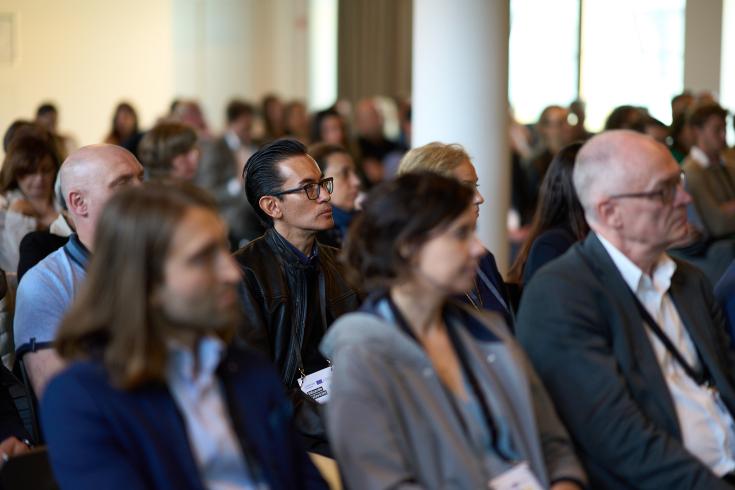Innovation Procurement – a powerful public policy tool

The European Commission defines Innovation procurement as “any procurement that buys the process of innovation – research and development services – with (partial) outcomes, or buys the outcomes of innovation”. It is an excellent means to support the implementation of regional innovation policies. It can boost business opportunities for SMEs and startups, support innovation and research investment, or provide bespoke and more adapted solutions in public services. It can trigger important benefits from both the demand and supply side.
Why innovation procurement is key
In recent years, with the shift towards transformative innovation policies such as mission-oriented innovation and regional missions, innovation procurement has increased visibility as it can be used as a powerful tool to steer public policies interventions that focus on important societal challenges such as climate adaptation and mitigation, healthcare, or the circular economy.
Innovation procurement can be an important policy tool in your regional policy mix, and the European Digital Innovation Hubs can be used as testbeds to procure innovative solutions for public authorities. During the Policy Learning Platform webinar on Pre-Commercial Public Procurement, the keynote speaker Lieve Bos from DG CNECT provided concrete examples in this sense.
The 5 must-have of innovation procurement
Innovation procurement is a complex policy tool, that requires capacity building, a long-term strategic vision, policy mix coordination and market engagement. As detailed in a dedicated Policy Learning Platform policy brief, experienced policymakers agree on a number of key factors that must be reunited to make innovation procurement a success.
- Have a strategic vision: ensuring political commitment is essential to set a clear policy mission within your institution, with clear mandates and resources to act.
Where to start? Bring proofs of success from other comparable contexts. Interreg Europe has a range of examples to inspire policy makers.
- Strengthen capacity-building: Innovation procurement requires undertaking specific activities that require time, money, expertise — they cannot be improvised. To successfully engage in innovation procurement, a public buyer should tap into knowledge and skills that can be built through internal training and targeted recruitment of relevant experts.
- Carry out preliminary open market consultations: proper preliminary open market consultation can help overcome a recurring problem observed in the application of procurement rules, i.e. non-realistic or outdated specifications or the identification of pre-existing solutions.
- Make use of pre-commercial procurement (PCP): it is a tool to procure research and development services at advantageous conditions from several economic operators. To some extent, PCP is a more flexible and less-resource intensive policy tool compared to public procurement of innovation.
The Pre-Commercial Public Procurement Platform webinar has explored PCP in detail.
- Use it as a transformative tool: innovation procurement is an opportunity for transformative changes in your region. Its flexible nature allows for bold decisions to face societal challenges with the required agility.
Lithuania in the spotlight
The Lithuanian Pre-commercial procurement support scheme is a national programme to encourage public institutions to adopt a pre-commercial procurement mindset. This is an interesting example of how demand-side innovation policies can strengthen regional R&D and innovative capacities, and respond to specific societal or technology challenges. The programme provides funding up to 85% of the PCP with the remaining 15% to be financed by the contracting authority. The programme can support pre-commercial procurement at different stages from the proof of concept to the creation of a prototype and functioning pilot system.
Apply for the European Innovation Procurement Awards
Not only in Interreg Europe, but also in many EU funding programmes innovation procurement plays a growing role: Horizon Europe, Digital Europe, the Innovation Fund. The EC is also increasingly promoting it with dedicated campaigns. The European Innovation Procurement Awards (EUIPA) is one important cornerstone of the EC strategy to raise awareness of policy makers and stimulate the uptake of this mechanism at local and regional level. Applications are open for the Award 2023 until 17 August 2023 at 17:00 CEST.
This flagship initiative supported by the European Innovation Council (EIC) under Horizon Europe, is now in its third edition. It aims to acknowledge and support the efforts undertaken by procurers to deliver better services and to bring products to the market in an innovative way. It also wishes to build a diverse European community of public and private buyers to share innovative procurement processes, and particularly in the delivery of public services.
